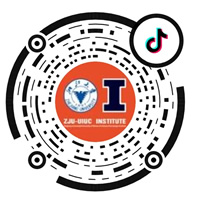At the intersection of macro engineering and safety technology, the research on heavy goods vehicles illuminates the future of urbanized transportation, and environmental sustainability. The integration of complex vehicle dynamics and advanced engineering technology reveals the impact of heavy goods vehicles traveling on highways and bridges on transportation systems, infrastructure, and ecological environments. The forty-year research of Professor David Cebon depicts a multidimensional path to improve vehicle safety, enhance vehicle operation economy, and reduce the impact on the environment. This is not only a breakthrough in engineering, but also a profound transformation related to global logistics and sustainable development.
▲ Professor David Cebon's lecture
In the afternoon of November 8, 2024, the Seventh Phase of Juanhu International Academician Lecture Hall was honored to invite Professor David Cebon, a Fellow of the Royal Academy of Engineering and a Professor of Mechanical Engineering at the University of Cambridge, to share his experience on the dynamics of heavy-goods vehicles. Academician Lee Der-Horng, Dean of ZJUI, presided over the event.
▲ Academician Lee Der-Horng, Dean of ZJUI, presided over the event
Professor David Cebon, drawing on his forty years of extensive research experience, delved into the dynamic characteristics of heavy-duty trucks, with the theme of Heavy Goods Vehicle Safety, Productivity, and Environmental Impact. From the perspectives of safety, operational economy, and environmental impact, Professor David Cebon provided a detailed introduction to the current research progress on heavy-duty trucks using rich practical cases and video materials.
▲ Professor David Cebon delivered his lecture
In terms of safety, Professor David Cebon first discussed how to improve the ABS (anti-lock braking) system to achieve shorter braking distances, and how to use the vehicle's rear axle steering function to optimize the driving trajectory of trucks, thereby significantly reducing tire wear. In addition, he also introduced his team's independently developed detachable trailer technology and automatic tracking and reversing technology for multi section trailers, which effectively improve the handling stability and driving safety of trucks.
Meanwhile, Professor David Cebon further emphasized the important role of electrification of heavy goods vehicles in reducing global carbon emissions. He compared and analyzed various technical methods for the electrification of heavy goods vehicles, including static charging, battery swapping, and dynamic charging, and introduced his team's deployment of an Electrified Road System (ERS) in the UK to solve the range problem of electric heavy goods vehicles. After verification, this plan is more capable of achieving goals such as the lowest economic cost and the lowest carbon emissions compared to other existing road freight "zero carbon" technology routes.
▲ Lecture’s scene
Facing future development trends, Professor David Cebon pointed out that in consideration of ensuring economic growth and logistics demand, the global ownership of heavy goods vehicles will continue to grow in the future. By optimizing the braking technology and active rear axle steering technology of vehicles, the safety and operational economy of heavy goods vehicles will be significantly improved. Finally, Professor David Cebon emphasized that electrification is an irreversible trend in the development of road freight systems, and in the transition phase towards a zero carbon society globally, electrified road systems will play a crucial role.
During the Q&A session, attending faculty and students enthusiastically interacted with Professor David Cebon. In this session, Professor David Cebon shared that he has high expectations for the future development of vehicle electrification and freight electrification in China, and looks forward to China playing a more important role in international cooperation to achieve global carbon neutrality.
▲ Q&A interaction
In the era of rapid technological development, every technological advancement is constantly changing and optimizing our way of goods circulation, profoundly affecting human health and well-being. From the jolts of a carriage to the roar of an internal combustion engine, from the simple pursuit of efficiency to the comprehensive consideration of environmental and ecological impacts, we have walked a long way. Nowadays, the cleanliness and digitization of heavy goods vehicles and road freight systems have become a new research trend. This trend not only contributes to environmental protection and economic benefits, but also plays an important role in improving operational efficiency, enhancing safety, and serving the logistics industry.
▲ Academician Lee Der-Horng presents souvenirs and mascot of Juanhu International Academician Lecture Hall to Professor David Cebon
▲ Group photo of guests
▲ Professor David Cebon visited ZJUI and Smart Urban Future Laboratory







